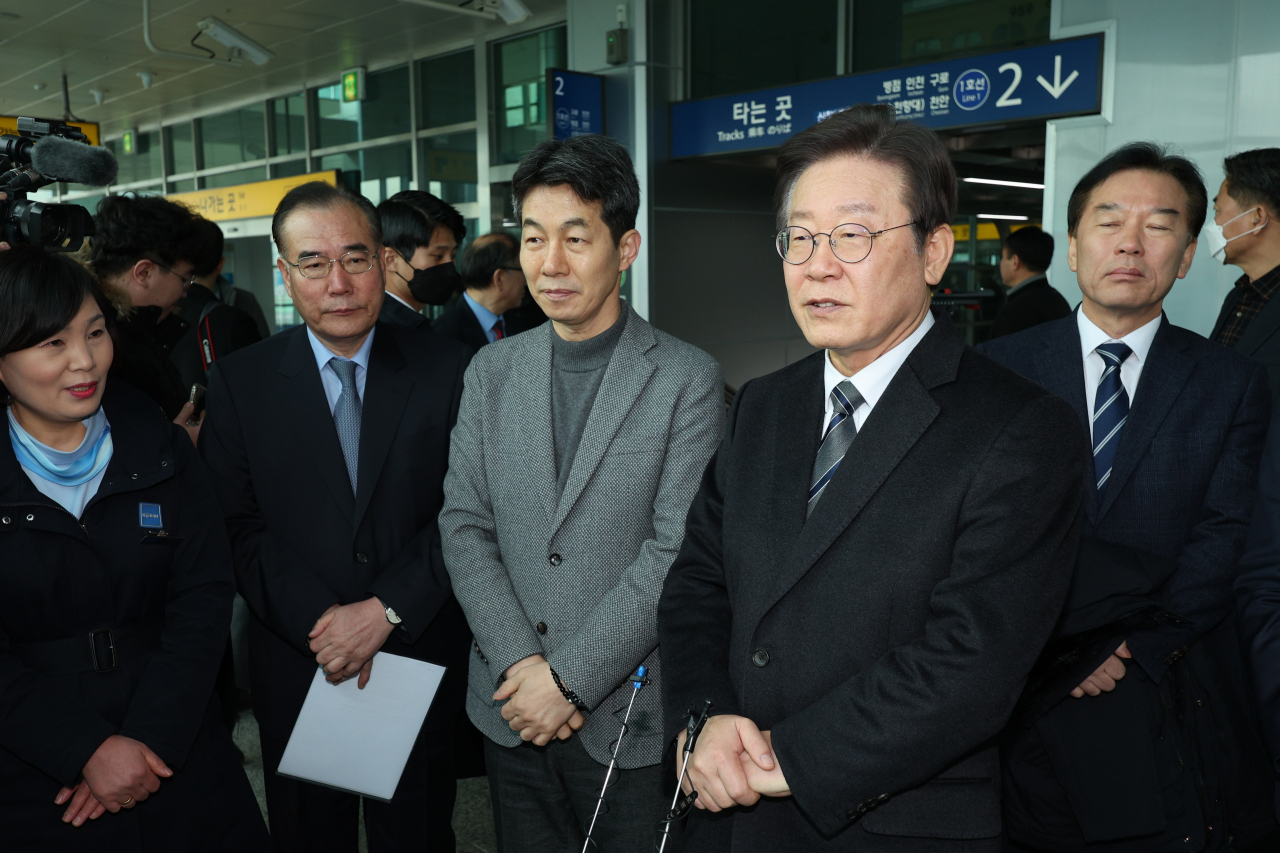Parties look underground for solution to train noise
By Jung Min-kyungPublished : Feb. 1, 2024 - 18:08

The main opposition leader on Thursday rolled out a set of pledges aimed at reducing subway and railway noise pollution, a day after the ruling party announced its own plans to resolve similar issues.
Visiting Sindorim Station in Seoul, Democratic Party of Korea Chair Lee Jae-myung pledged to launch a renovation project that would relocate several elevated railways across the country underground.
The parties' pledges aim to win over voters suffering from noise from train and subway lines in the runup to April's general election.
The renovation plan includes the GTX or Great Train Express, which is a high-speed rail network that connects the nation's capital with other greater Seoul areas.
Lee also vowed to improve the conditions of the neighborhoods surrounding elevated railways by aiding in the renovation of houses and stores.
A day earlier, People Power Party interim Chair Han Dong-hoon's similar announcement made during his visit to Jangan District in Seoul's satellite city of Suwon. Jangan District is a transportation hub within Suwon and has trains connecting the satellite city with Seoul.
The ruling party leader said he was seeking to change elevated railways into underground ones and transform the areas surrounding them into better neighborhoods filled with parks, offices and homes.
The moves come as the National Assembly passed the bill aimed to improve and renovate old and elevated railways across the country last month, based on President Yoon Suk Yeol's earlier election pledge. The legislation, which provides ground for the railway renovations and the areas surrounding them, will officially take effect on Jan. 31, 2025.
Meanwhile, a recent survey by Gallup Korea showed that Lee and Han were the favorite potential candidates for the next presidential election scheduled for 2027. A survey involving 1,004 Korean voters aged 18 and older showed that Lee and Han were the most popular, with each politician earning 26 percent support. The other three potential candidates, including former Prime Minister and ex-leader of the Democratic Party Lee Nak-yon, earned 3 percent each.



















![[Today’s K-pop] Treasure to publish magazine for debut anniversary](http://res.heraldm.com/phpwas/restmb_idxmake.php?idx=642&simg=/content/image/2024/07/26/20240726050551_0.jpg&u=)